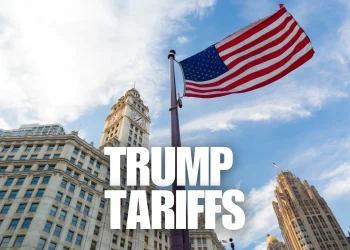As globalization further interconnects worldwide commerce and capital movements, select metropolitan centers have risen to dominate international finance. Concentrating an outsized share of multinational corporate headquarters, banking assets, exchanges, and advanced business services, these locations form the nerve centers driving modern globalization. While competitive landscapes constantly shift, several stand apart as the undisputed top-tier international financial centers powering today’s integrated markets.
What are Considered as Financial Centers?
Designating financial centers considers the depth and diversity of related business activity. Key indicators include total banking assets, currency trading volumes, stock exchange sizes, insurance underwriting, and the availability of advanced professional services supporting capital mobilization on a global scale. Regulatory frameworks respecting private property and contract law prove essential in attracting international capital. World-class infrastructure and specialized talent concentrations representing all aspects of modern finance distinguish true financial powerhouses. Now let’s have a look at the top financial centers in the world.
London – A Historic Heavyweight

No city rivals London’s centuries of dominance in global finance. Even with post-Brexit uncertainties, the British capital remains unmatched in scale across asset management, insurance underwriting, and currency exchange. London boasts the largest currency trading hub worldwide processing over $2 trillion daily. Iconic institutions like Lloyd’s of London and the London Stock Exchange date back centuries, solidifying London’s prestige alongside banking giants with headquarters dotting “The City.” Stringent common law frameworks and cultural exports cement influence over former colonies worldwide. While challengers emerge, London’s unparalleled connectivity and legacy sustain primacy.
New York – Wall Street Titans Reign Supreme

Home to Wall Street and headquarters for the most valuable companies, investment banks, hedge funds, insurance conglomerates, and exchanges in existence, New York stands atop the global financial summit. As the principal listing venue for multinationals and the dollar’s dominance in international reserves and petrodollars, New York commands over 20% of global foreign exchange activity daily and the world’s deepest corporate debt markets. Extensive legal and accounting support enhances New York’s scale advantages, reinforced through networks across North America. No city comes close to matching New York’s concentration of financial power players.
Hong Kong – Rising Dragon Financing China

Benefiting from special economic integration with mainland China and a British colonial legacy transplanting common law, Hong Kong has ascended as Asia’s preeminent financial centers. Over 170 banks, including most Global Systemically Important Financial Institutions (G-SIFIs), populate Hong Kong which hosts the Hang Seng Index and oversees the majority of Chinese companies’ offshore equity and debt financing activity. Robust infrastructure links extend Hong Kong’s reach into Greater China alongside the political and economic stability Western institutions covet. With further mainland opening cementing financial ties, Hong Kong plays an outsized intermediary role in driving Asian growth.
Singapore – Thriving Asian Financial Centers of Innovation

Situated at the strategic crossroads of global shipping lanes, Singapore has intelligently leveraged proximity throughout Asia, Africa, and Oceania into a world-leading finance ecosystem. Housing the Monetary Authority of Singapore regulating the nation’s banks and exchanges, Singapore attracts multinationals through political stability, education infrastructure on par with Western nations, and competitive tax incentives. Over 130 international banks populate Singapore which serves as the top wealth management center for ultra-high net worth individuals throughout fast-growing Asia. Digital banking frontiers flourish from Singapore’s startup culture as well.
Tokyo – Anchor for Asian Capital Markets

Home to the massive Japanese equity, bond, and derivatives markets, Tokyo qualifies as Asia’s largest marketplace alongside dynamic currency trading and insurance underwriting volumes. Powered by Japan’s institutional investors and pension funds, the Tokyo Stock Exchange stands as the world’s third-largest bourse by market capitalization. Japan’s regulatory apparatus incorporates global standards while investment banks, insurers and manufacturers headquartered throughout Tokyo shape regional flows of goods, services, and funds throughout Asia. Scale and regulatory sophistication underpin Tokyo’s enduring influence.
New Financial Centers Developing
As prevailing titans solidify their positions, fresh contenders surface. Old European cities restructure in the face of digitalization, while smaller Asian capitals take off. In the end, prosperous financial hubs are concentrated areas with specialized knowledge and cutting-edge infrastructure that can quickly support the intricacies of modern international trade. Competitive landscapes are always shifting as technology is transformed by finance. But longevity arises from maintaining first-mover advantages in the face of change – a lesson incumbent nations take to keep their positions at the top of the global financial system. While adaptability fuels tomorrow’s leaders, scale and legacy support the standards of today.













